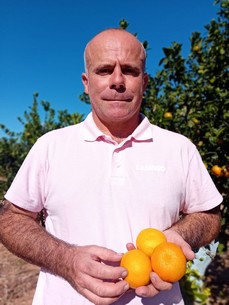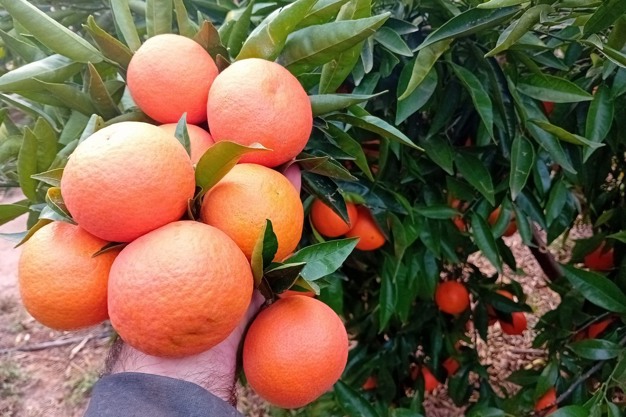In late March, the prices of various orange and mandarin varieties still in season have once again recorded significant declines compared to the previous campaign. Worthy of note last week was the drop in the prices of the Valencia Late and V. Delta in the Region of Valencia, which fell by 48% compared to a year earlier.

"There are 3 main factors behind this trend," says Carles Peris, from La Unió Llauradora. "The first one, unfortunately well-known to us, is the pressure from third-country imports, and the others are the lower consumption and demand. It's worth recalling that we've been seeing a constant decline in citrus consumption in Europe for the past 10 years."
"In this campaign, in which we expected lower production volumes, we had anticipated a stable season without too many issues, despite the reduced consumption. That was indeed the case until approximately January 10, when the prices of both oranges and small citrus fruits plummeted, with the pressure from low-priced imports as a major destabilizing factor. This has affected not only the prices of fresh produce, but also those of the fruit intended for the processing industry, which is an important outlet for us."
 "At the start of the campaign, we've been getting very respectable prices from the processing industry, above the actual production costs. For oranges in Andalusia, prices exceeded 40 cents per kilo, and in the Region of Valencia, they reached up to 35 cents. Then, overnight, the flow of cheap imports caused them to fall."
"At the start of the campaign, we've been getting very respectable prices from the processing industry, above the actual production costs. For oranges in Andalusia, prices exceeded 40 cents per kilo, and in the Region of Valencia, they reached up to 35 cents. Then, overnight, the flow of cheap imports caused them to fall."
"In January, the imports from Egypt, our biggest competitor at that point of the campaign, grew by 120%. There was another increase in February, and this growth will continue until April, because the contracts for what is going to be imported during those four months have already been signed for some time, back when the prospect was that we would have a low production and that there might be a shortage of fruit."
"If supermarkets get an offer at low prices, they'll also demand that from you"
Regarding consumption, the inflationary context seems not to have helped in this second part of the campaign, when the focus is on the harvest of club mandarin varieties, whose price is generally higher, both at origin and in the retail. "Since the demand is falling due to the overall decline of consumption in Europe, prices at origin are also dropping. The volumes of Turkish or Moroccan mandarins that have entered the market haven't been large enough to justify such price drops, but they were cheaper, so Spanish fruit prices have been pushed downwards. Supermarkets are not foolish, and if they get an offer at low prices, they'll also demand that from you."

"Egypt has almost 24 million orange trees planted, but only about 14 million of them are already productive"
There are still months of campaign ahead, but according to Carles Peris, it is essential to analyze what's happening now. "We are not managing to increase citrus consumption in Europe, and although we are producing less, it's difficult for the sector not to be destabilized when overseas fruit is brought in."
As pointed out by La Unió a few weeks ago, "this isn't a problem we are having just now, but one that we'll continue to have in the future," since Egypt, which is one of the largest suppliers when the Spanish campaign is underway in Europe, "has almost 24 million orange trees planted, but only about 14 million of them are already productive."

"It's important to consider that 96% of the citrus we produce goes to Europe, including our domestic market, meaning we are highly dependant on this market. Meanwhile, Egypt can deliver to cheaper destinations, and in the coming years, it will increase its export volumes," says Carles.
"If we don't make a solid effort in promotion and manage to boost citrus consumption, we'll be in trouble. Unfortunately, our interprofessional association has been dead for years and is not doing the promotional work we need."
"We stand for quality, proximity, food safety and service. We enjoy many advantages, but we must remember that we're not just competing with other countries, but with other products on the shelves."

 For more information:
For more information:
Carles Peris
La Unió
Carrer del Marquès de Dos Aigües, 3-1 Valencia, Spain
Tel.: +34 963 530 036
[email protected]
https://launio.org
